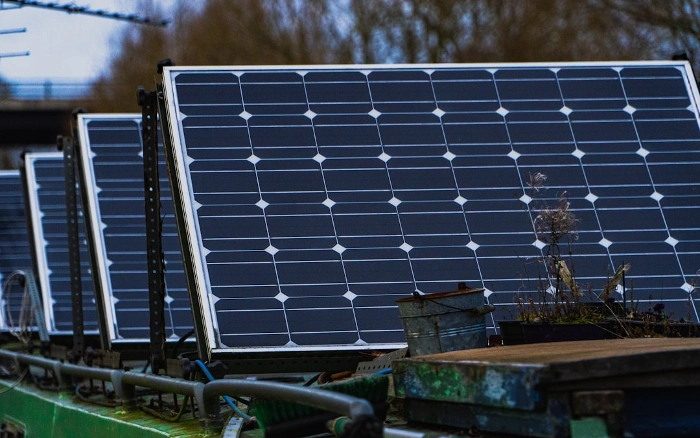Best portable Solar Generator For Van Life

Disclosure: Some of the links in this article may be affiliate links, which can provide compensation to me at no cost to you if you decide to purchase. This site is not intended to provide financial advice and is for entertainment only.
Updated July 2025
If you've been living the off-grid life for any amount of time, you already know how critical portable power is. I started with a Jackery 500 — and believe it or not, that little orange box is still kicking around. It got me through years of van life, back before I even bothered to hook up solar panels. But as tech has evolved and my needs have grown, I found myself looking for something stronger, faster, and more reliable.
After a ton of research, I landed on the Anker Solix F2000. It’s not an exaggeration to say it’s been life changing. From running appliances to keeping my entire mobile setup powered, it has transformed how I live off-grid. Even though I ran into a few hiccups with the app and one quirky firmware issue, I still recommend it to anyone living this lifestyle.
Check out my full Solix F2000 review here
What Is a Portable Solar Generator?
A portable solar generator is exactly what it sounds like: a compact, rechargeable power station that uses solar panels (or wall/car outlets) to charge up. Once it’s juiced, it stores energy in a built-in battery and lets you power everything from laptops to blenders to fridges.
These aren’t gas-guzzling monsters like traditional generators. They’re silent, clean, and made for people like us — nomads, van lifers, off-grid folks who don’t want to mess with noise, fumes, or mechanical upkeep.
How Portable Solar Generators Work
Most models follow the same structure:
Solar Panels (optional, but highly recommended)
Charge Controller (regulates power intake)
Battery Bank (stores the power)
Inverter (lets you use AC-powered gear like a phone charger or blender)
Plug in your solar panels, let them soak up sunlight, and the power flows into your generator’s battery. From there, the inverter converts that DC power into usable AC — so you can live comfortably without needing to be plugged into shore power.
I've paired mine with the Anker Solix PS400 Solar Panel, and it's made a huge difference in how quickly I can recharge — even on cloudy days. The quick charging time on the F2000 is honestly a game changer. On days when the weather wasn't cooperating, I did have to top it off using my built-in generator, but those were the exception, not the rule.
Why Van Lifers Love Them
Silent Operation – I love waking up in the desert and hearing nothing. No generator hum, just birds and wind.
No Ongoing Fuel Cost – Once you own it, the sun is free.
Reliable Off-Grid Power – Charge your laptop, cook your meals, run a Starlink. It’s freedom.
Low Maintenance – No oil changes. No spark plugs. No BS.
If you’re prepping for colder seasons, this kind of setup pairs well with a good RV winterization strategy, especially when you want power without needing to run a noisy gas unit in icy temps.
Know the Limitations
Solar generators aren’t magic. If you’re trying to run a full-size fridge or AC for hours, you’ll need a large battery and solid solar input — plus a realistic understanding of your power draw.
Weather matters too. If you’re parked under trees or in a cloudy zone, solar charging slows way down. Luckily, most generators (like the F2000) also let you charge via wall outlet or your van’s 12V port.
Final Thoughts
Upgrading from my Jackery 500 to the Anker Solix F2000 felt like jumping from a flip phone to a full-blown smartphone. It's not perfect, but it’s powerful, efficient, and rugged enough for full-time off-grid use.
If you're just starting out, a smaller model like the Jackery might still make sense — and hey, mine still works after four years! But if you’re serious about van life or RVing off-grid, it’s worth investing in something that can keep up with you.
Want a deeper dive? Read my full breakdown of the Solix F2000 here
And if you're sorting out your airflow or heat situation, don't sleep on this portable fan for camping. Game changer.
Shop the Gear I Use
These are the actual products I’ve tested and still use on the road:
ANKER SOLIX F2000. Check out pricing below:
Anker Portable Solar Panels. Check out pricing below:
Jackery 500 Check out pricing below:
About the Author
Royanne has been living full-time on the road since 2009. She writes honestly about the highs and lows of solo RV and van life at missadVANture.com.
Disclosure: Some of the links in this article may be affiliate links, which can provide compensation to me at no cost to you if you decide to purchase. This site is not intended to provide financial advice and is for entertainment only.
